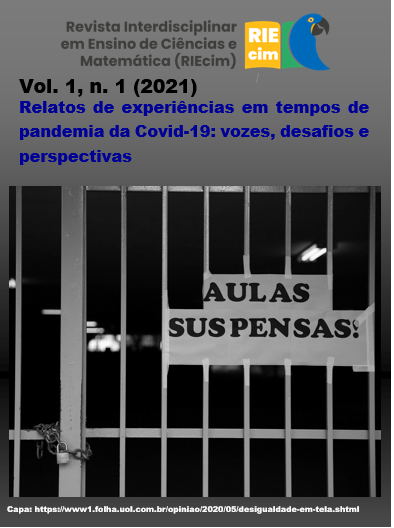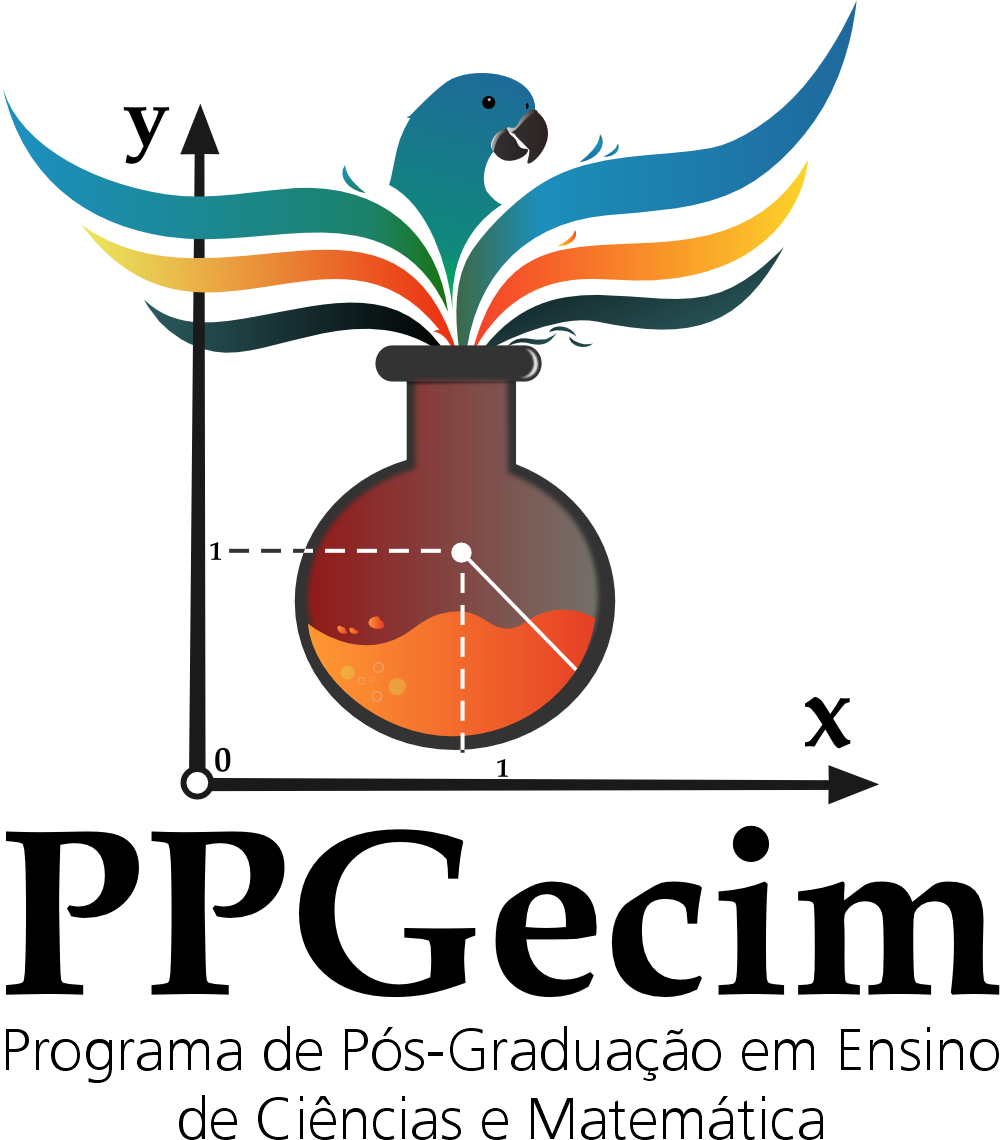ALTERNATIVES USING DIGITAL INFORMATION AND COMMUNICATION TECHNOLOGIES FOR SCIENCE CLASSES IN THE CONTEXT OF A PANDEMIC
DOI:
https://doi.org/10.20873/riecim.v1i1.11832Keywords:
Science and DTIC, Education in Pandemic, Remote ClassAbstract
From the declaration of a pandemic triggered by the World Health Organization due to the new coronavirus, social relations had to undergo a rapid change. Consequently, with social distance, labor relations across society have also been drastically altered. Specifically in the case of Education, the most appropriate model is the use of remote (synchronous) classes. The teacher's reinvention in all its praxis is challenging. The remote system (not allowing social contact) revealing the different issues of the social problem to the student: inattention and monotony. In this way, this work proposes a discussion on the use of Digital Technologies of Information and Communication to add the classes of Sciences, promoting the process of teaching and learning. Among the suggestions are the use of interactive websites, software and podcasts. Obviously there is no recipe, but the adaptation suggested here guides new possibilities for remote classes.
Keyword: Science and DTIC, Education in Pandemic, Remote Class
References
ALMEIDA, Adriana; CORSO, Angela Maria. A educação de jovens e adultos: aspectos históricos e sociais. In: XII CONGRESSO NACIONAL DE EDUCAÇÃO: EDUCERE, Curitiba, 2015. Anais ... Curitiba: Pontifícia Universidade Católica, 2015. p. 1283-1299.
FREIRE, Paulo.Pedagogia do Oprimido. São Paulo: Paz e Terra, 1974. Moreira, Marco Antônio. Mapas conceituais e aprendizagem significativa. São Paulo: Cantauro, 2010.
RIBEIRO, Vera Masagão, JOIA, Orlando; PIERRO, Maria Clara Di.Visões da educação de Jovens e Adultos no Brasil. Cadernos Cedes, ano XXI, nº 55, novembro/2001.
VIEGAS, Ana Cristina Coutinho; MORAES, Maria Cecília Sousa de. Um convite ao retorno: relevâncias no histórico da EJA no Brasil. RIAEE –Revista Ibero-Americana de Estudos em Educação, v. 12, n. 1,p. 456-478, 2017.
Downloads
Published
How to Cite
Issue
Section
License
Copyright (c) 2021 Felipe Barbosa

This work is licensed under a Creative Commons Attribution-NonCommercial 4.0 International License.
Copyright Policy
Copyrights are retained by the authors, who grant RIEcim the exclusive rights for first publication. Authors will not be remunerated for the publication of their work in this journal. Authors are permitted to enter into separate, additional contractual arrangements for the non-exclusive distribution of the work's published version in this journal (e.g., post it to an institutional repository, on a personal website, publish a translation, or as a book chapter), with acknowledgement of authorship and initial publication in this journal. The Journal's editors have the right to make textual adjustments and adaptations to conform to publication standards.
Open Access Policy
This journal provides immediate open access to its content, following the principle that freely providing scientific knowledge to the public contributes to the global democratization of knowledge. Users can read, download, copy, distribute, print, search, or use the content for any legal purpose, respecting national copyright laws and without seeking prior permission from the publisher or the author. The opinions presented in the articles are the responsibility of the authors. The Journal does not charge Article Processing Charges (APCs).
Licensing Policy - Usage License
Licensed under the Creative Commons Attribution-NonCommercial 4.0 International (CC BY-NC 4.0) License. This license allows sharing, copying, redistributing the manuscripts published in RIEcim in any medium or format. Additionally, it allows adapting, remixing, transforming, and building upon the material, as long as proper credit is given to the author and initial publication in this journal is acknowledged.

































